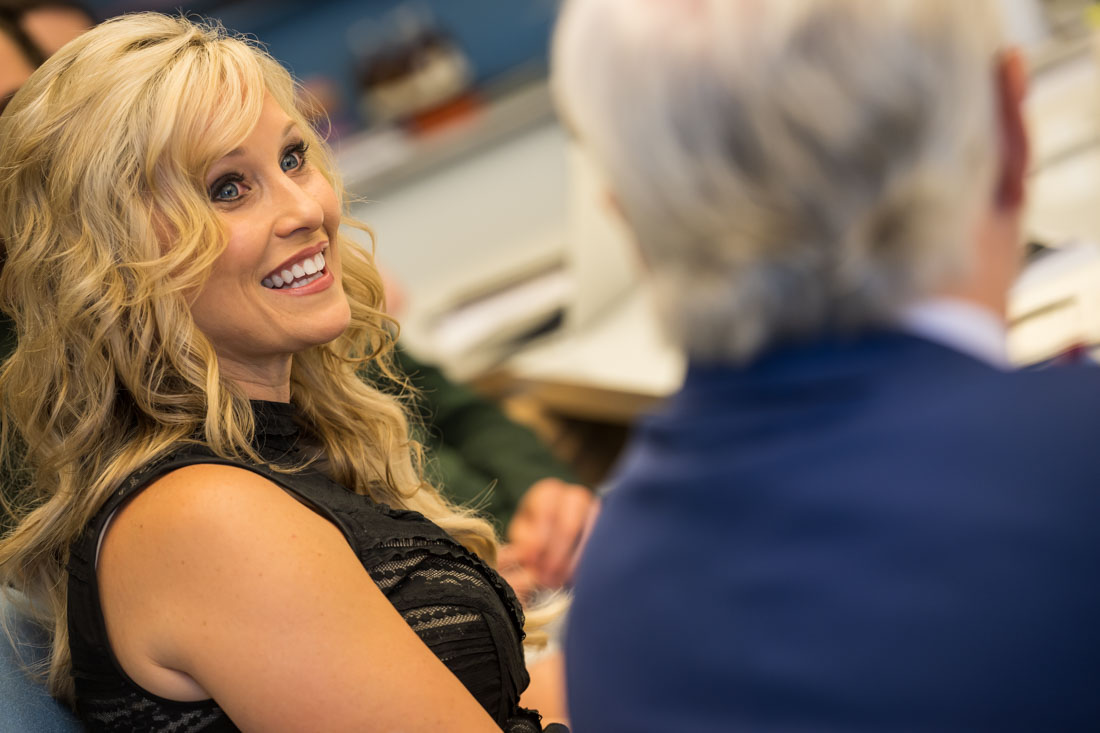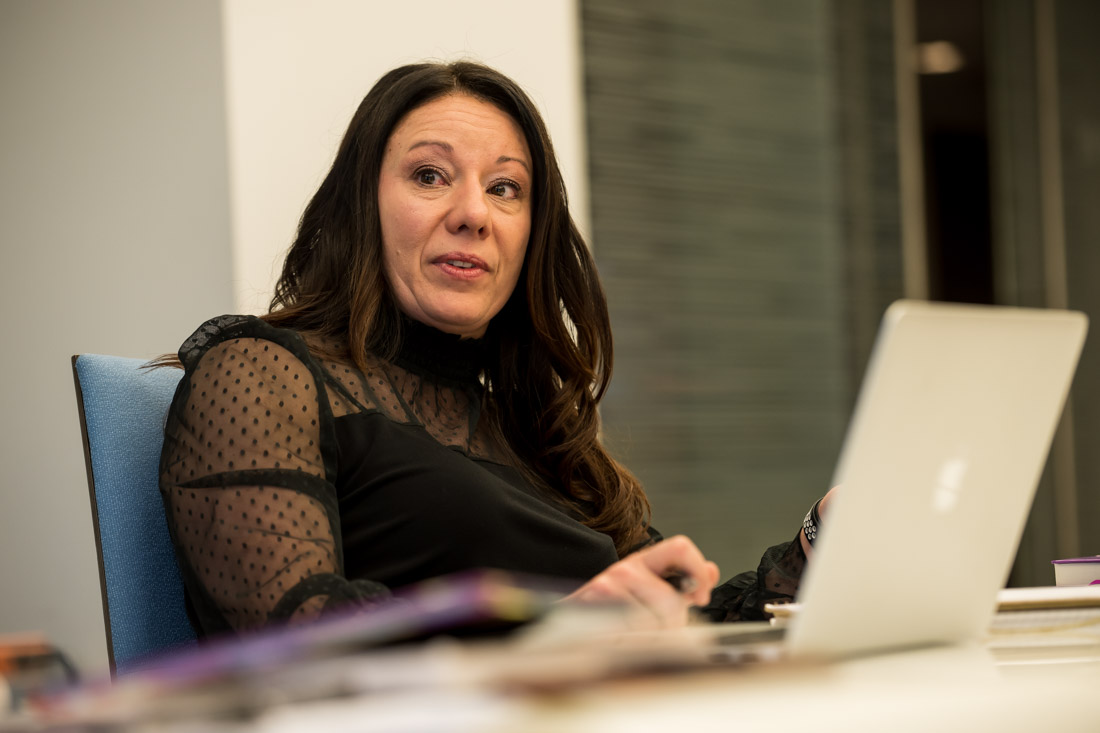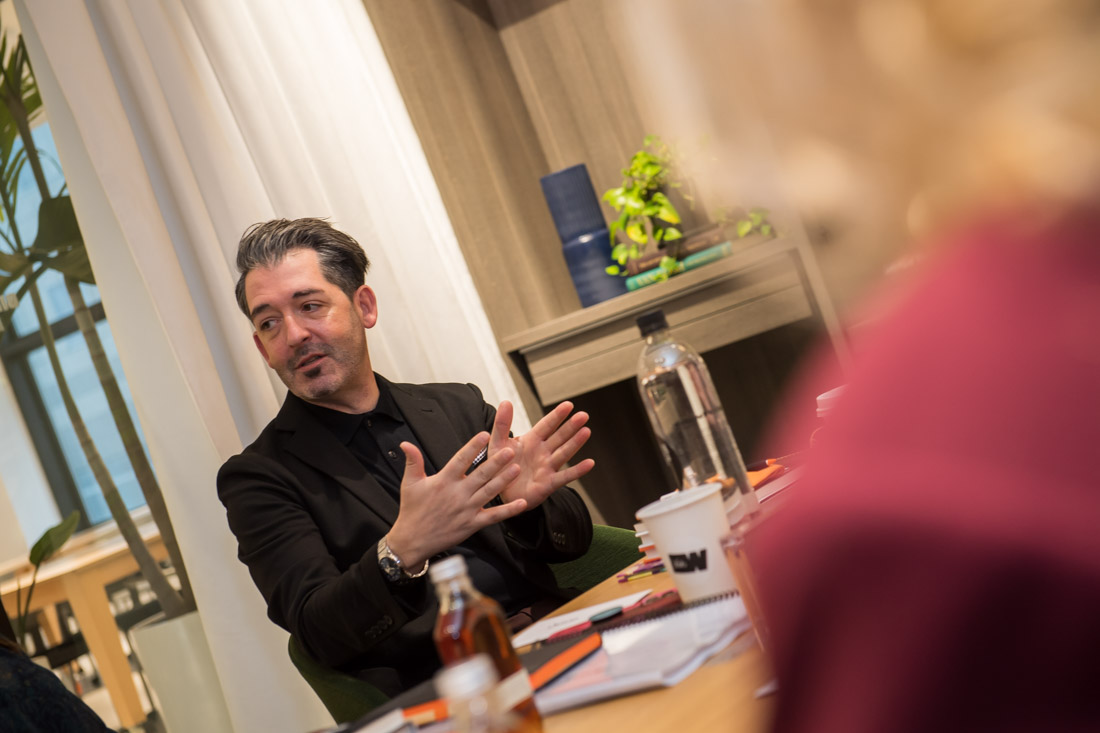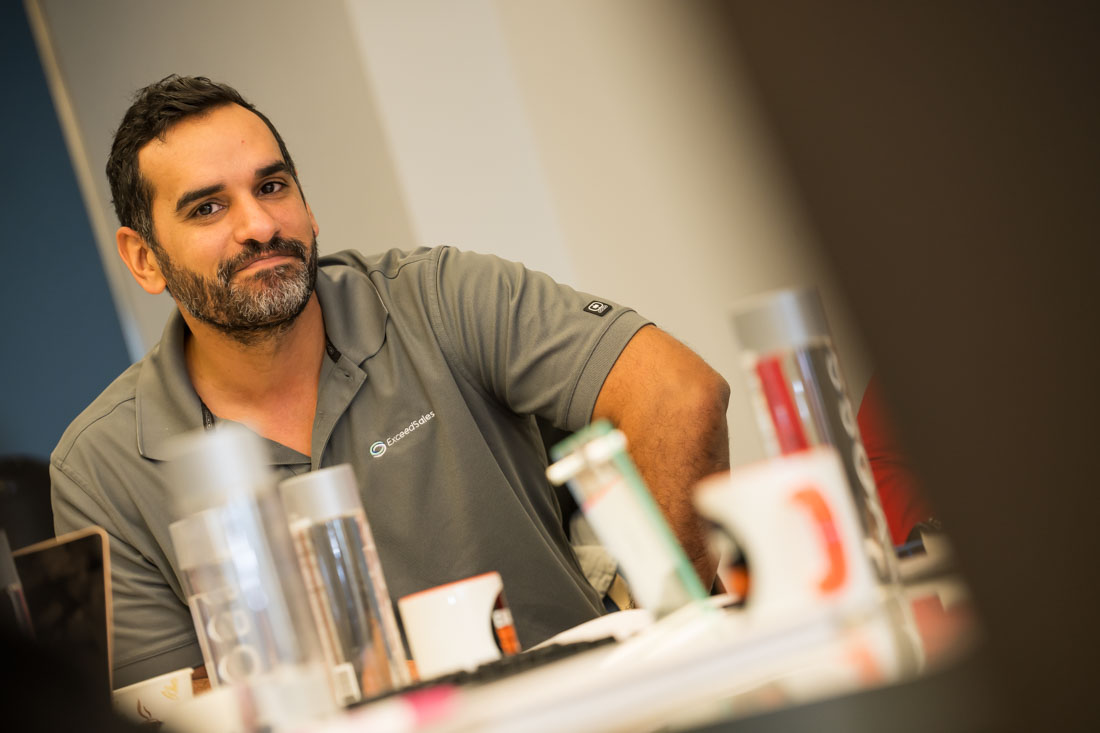Rob Ferre is a professional DJ, master of ceremonies, and all-round entertainer, weaving the electricity of recognition and training into the rhythm of laughter and movement.
He recently held one of the EWTS Critical Conversations Webinars focusing on how to let go of fear.
Whether that fear is manifested in sales, leadership, or your interactions, this blog will teach you how to reverse it and pave the way toward success.
Take A Leap Of Faith
Fears can hold you back, but sometimes, all that’s needed is a leap of faith.
After graduating college, Rob didn’t have a job opportunity.
Anyone who has been in this situation will understand what a worrying prospect this is. Rob had big dreams, but the right opportunities didn’t come around, so instead of letting his fear hold him back, he got in his car, drove across the country, and signed up for the Walt Disney World College Program.
He was given his assignment – a place at MGM Studies! His role would be in the attractions and operations departments.
After excitedly taking the job, when he arrived at the department, he discovered that he would be working in the parking lot, directing traffic and shuttling people from their cars to the studio.
It was a bit of a letdown, and he was left feeling like he had no purpose, with nothing but crushed dreams.
With a college degree and big ambitions, this role didn’t really fit with that.
So what does it take to get yourself out of that kind of situation? How do you find different opportunities that are more in line with your dreams?
For Rob, he had to get over his own fears and biases about what the job was going to be.
He had to create something big for himself.
Taking inspiration from the Jungle Cruise attraction at Disney World, he took a humble tram ride and created his own jungle cruise experience.
As his confidence grew, he took a chance and performed at the Walt Disney World College Program Talent Show, which led to him becoming an interactive theme park DJ.
Without fear, Rob would not have pushed himself toward his dreams, and he might not have become a DJ, professional speaker, or coach.
Have fears ever held you back? Are they still holding you back?
Could it be possible that a leap of faith could make your situation better?
Common Fears
Most people suffer from phobias or have a fear of something. You might relate completely with some, while others seem trivial. But fears manifest with different people in very different ways.
The top 10 phobias, according to a study, are:
1
Public speaking
2
Heights
3
Spiders
4
Flying
5
Dark
6
Confined spaces
7
Snakes
8
Failure
9
Social situations
10
Death
Are any of these on your list?
Even if yours isn’t there, can you see what all of these fears have in common? They are all fears of the unknown.
Most people experience fears based on the unknown, and this is why public speaking is often the biggest fear.
Rob doesn’t have a fear of speaking; this might be just like you, too. But he does have a fear of saying the wrong thing and flubbing his lines.
Like most people, Rob has a fear surrounding rejection, that his audience won’t be interested in what he has to say. No matter who you are, most people fear rejection, and for good reason.
The Science Behind Fear Of Rejection
During Rob’s webinar, he invited DynamiCoach founder Tom Cobin to come and talk about the actual science behind the fear of rejection.
According to Tom, the fear of rejection is in your DNA. It goes back as far as the earliest humans. You need a tribe to survive; without their support, you would have to fend for yourself.
Do you fear that if you speak publicly, you might embarrass yourself, be humiliated, or worse, be rejected?
Embarrassing yourself rarely leads to rejection. In fact, the opposite is usually true.
Research at the University of Berkeley shows that when people demonstrate the capacity for embarrassment, it actually brings them closer together.
Most people root for you to do well, so it should be reassuring to know that your worst fear might be the best thing that could happen to you in terms of establishing a connection with others.
Humanizing yourself lets people know that you’re just like them.
How To Overcome The Fear Of Public Speaking
Think of something that you are really good at. Are you afraid of doing it?
Most people are not afraid of something that they know they are good at, so confidence is the antidote to a fear of public speaking.
What are the ways that you can feel confident? Rob recommends the following:
- Research - do the work before the work
- Rehearse - know your words - the worst time to think about the thing that you are saying is in the moment that you’re saying it.
- Practice, practice, practice - your words need to feel natural. Try not to merely memorize. Internalize it so that if you go slightly off script, you know your story so well that you can keep on track.
- Breathe - breathing techniques are a practical and efficient way of calming your nerves.
With these recommendations, could you turn your fear into courage? Could you encourage your teammates and colleagues to do the same?
The Triangle Of Courage
The EWTS Triangle is a process that can help you get more clarity for yourself, your clients, and the people you work with. Following these ingredients can lead to the courage to act.
You first need to start with curiosity. This manifests itself by asking questions. Whether it’s a client, a prospect, or a friend, lead with questions to learn more about them and their situation.
Asking questions creates empathy with the person you’re talking to. One of the best things you can do for a nervous client is to say either I get it, I understand, or I’ve been there.
When you lead with curiosity, you can move toward certainty in the least combative way. And you need to be certain about something if you are going to act courageously.
Empathy ultimately leads to relatability, and if someone can relate to you and you to them, they will no longer fear moving forward with you.
Musical Empathy
As a DJ, Rob loves music, but when it comes to playing music to an audience, you need to know the right songs to play at the right time.
He calls this musical empathy.
Music is the metaphor when it comes to empathy, so when you’re speaking to clients and trying to be relatable, what music are you playing?
Are you playing music to make them dance, or are you dancing to your music?
There are songs that Rob hates to play, but seeing how an audience can react to them, he has realized the potential and importance of certain songs.
When you understand what’s right for your guests, you’ll be a better DJ. The same is true for your business. Once you understand the other person’s needs, you can calm fears and provide the very best service.
Staying In The Game
Everyone has biases and preconceived notions based on very little information. If you can get more information, you can do better and help your clients more effectively.
When conversations are not going your way, the easiest option is to give up, walk away and accept that, on this occasion, you will not reach your desired outcome.
But imagine what could happen if you had a handful of Magic Words that allow you to remain purposeful in the conversation.
Could it be possible that by using them, you can step back to a position of curiosity and explore new possibilities?
Magic Words & Phrases To Help You
To re-approach existing LinkedIn contacts, first, you find them. Secondly, be recognizable and curious. And thirdly, re-introduce yourself.
Do this in a way that you feel comfortable because it needs to be authentic.
If you want to reach out and give some value back, perhaps share one of the EWTS Webinars that are coming up.
Could you imagine saying this?
I’m not sure if it’s for you, but are you available [insert date]? I’m attending a webinar you might enjoy.
It’s about….and I thought you might benefit from it.
This is a fantastic way to connect and provide value at the same time. You could even invite them to one of your own events. But be careful. If it’s a paid-for event, then you’re slipping into the realm of selling.
What Makes You Say That?
When a client says that they can’t sign right now, digging a little deeper will help you understand their ‘whys’ a little more.
Avoid judgment; do it in an empathetic way to get a better response.
Help Me Understand
If you’re doing it over email, don’t be accusatory. Come from a place of curiosity. Preframe your questions with ‘help me understand’ so they can feel your empathy.
Before You Make Your Mind Up
Remain curious for long enough that you can understand what they are afraid of and what’s holding them back. Help them feel seen and understood.
‘Before you make your mind up, are you sure that we’ve overcome all of the things that you were nervous about?’
Would It Help If?
Find out everything that you can to help them feel at ease and trust working with you.
If I Can, Will You..?
Rob recently collaborated with a friend to create an online course. The friend asked him to write down his methodology in bullet points so that they could use it to build the content.
Rob’s process is scattered, and recording that was a very daunting task. He had a fear of his limitations on what he could produce, and this fear was preventing him from moving forward and taking action.
The friend provided a manageable solution using the If I can, will you… phrase.
He said, ‘If I can set up a Zoom call and record everything, will you jump on for an hour once a week to go over your methodology?’ This instantly became more manageable and encouraged Rob to say yes.
Could you use this during a Critical Conversation in your world?
Initiate, Guide, Go
Rob lives by the mantra of being the first one out on the dance floor. He calls it IGO: Initiate, Guide, Go.
You might be the first one out on the floor, or you might be supporting someone who went out first.
Most people need a little guidance to feel secure to act in an unknown situation, so lead by example and guide them to a place where they feel comfortable.
If you’ve guided your clients properly, you can step off the dance floor and let them own it.
Imagine that you’re the DJ, and you need to ignite your audience. It’s about empowering people to own the dance floor.
Albert Einstein famously said, ‘Nothing happens until something moves.’
You have got to move to make things happen.
You’ve got to get over your fears and help those that you serve to get over their fears.
This blog was part of a series of EWTS Critical Conversations Webinars, and if you want to experience the full webinar experience, you should sign up to hear what is coming up in the series.











